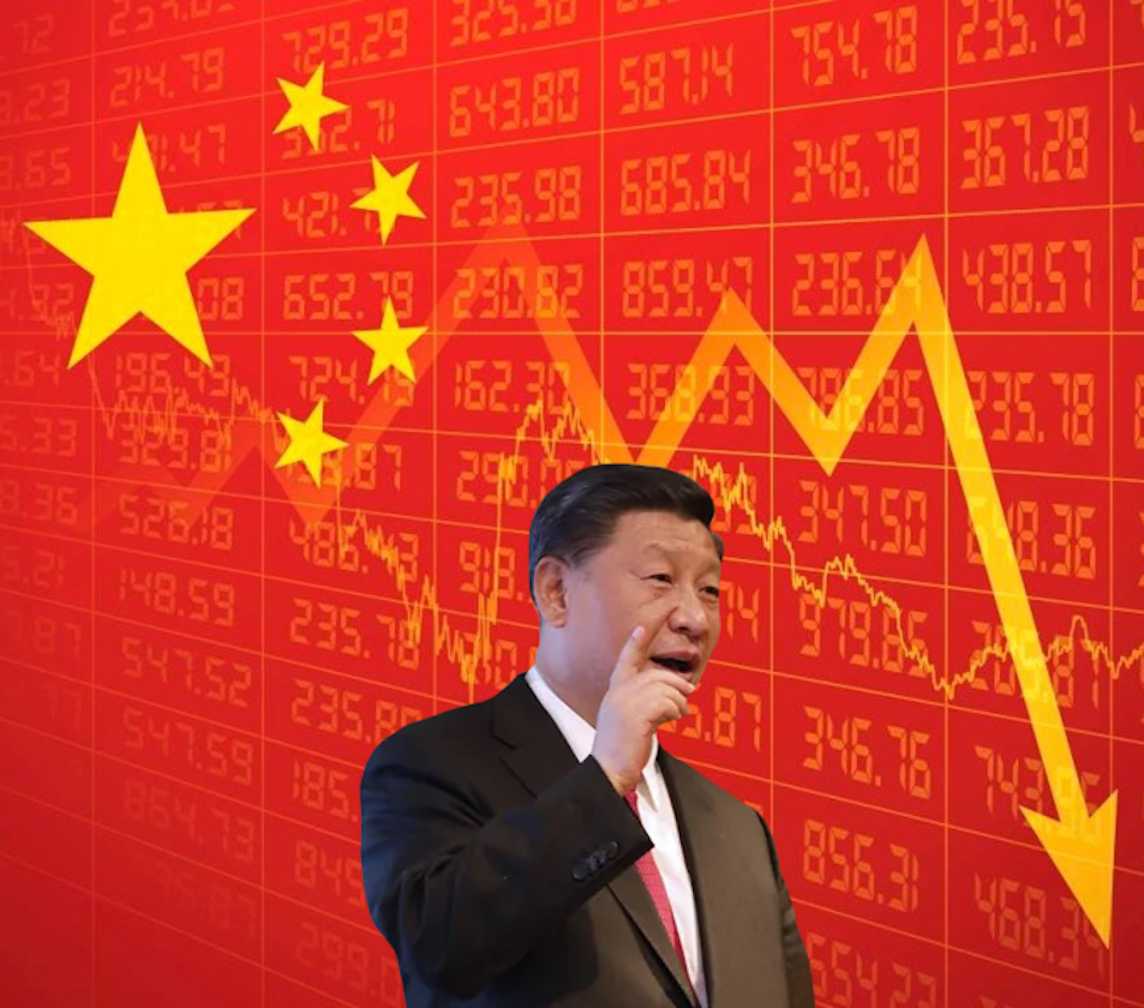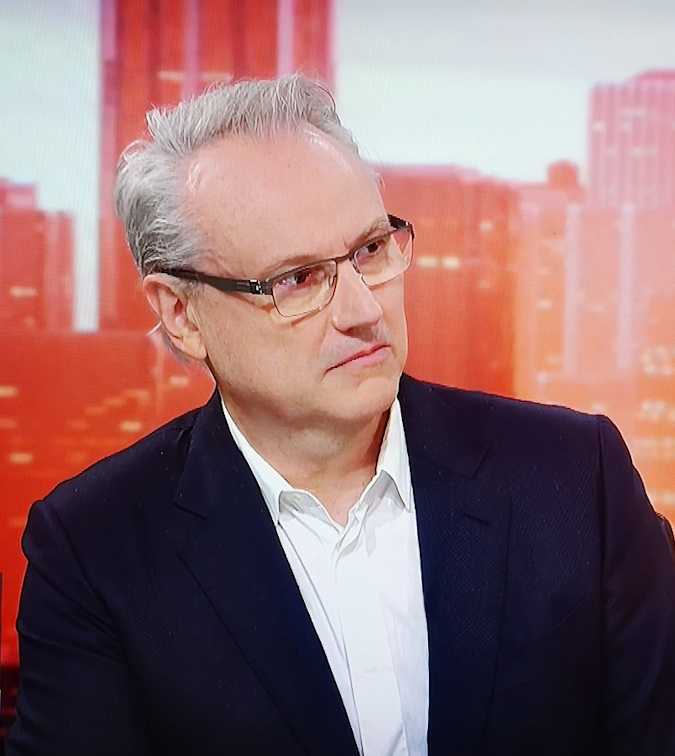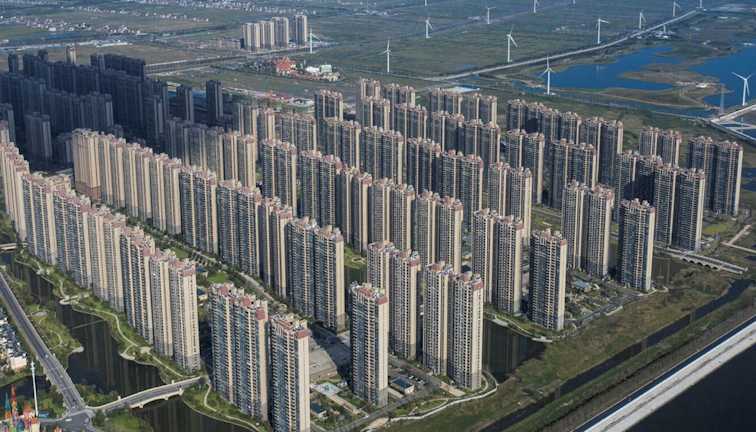
31 August 2023
On the 27th August edition of TVNZ’s Q+A program, frontman Jack Tame interviewed economist Rodney Jones and what he had to say reinforced growing concerns around the world about China’s worsening economic woes.

Rodney Jones is a New Zealander and he is one of the principals of Wigram Capital Advisors which is an Asian focused economic advisory company and provides analysis and strategic modelling advice to the likes of international investment funds and government agencies etc. He has an impressive and extensive professional history which includes associations with a number of tier-one financial institutions. Wigram Capital Advisors established an office in Beijing in 2010 and continues to have a presence there. It is reasonable to assume that given his lengthy first-hand experience with China he has a unique insight into what happens and more importantly, what might yet materialise with that economic power-house.
The interview transcript below was prepared with the kind consent of Wigram Capital Advisors.

An Evergrande development in Qidong, Jiangsu province
Rejigit continues to update a previous article reporting on the increasingly parlous state of one of China’s largest property developers, the Evergrande Group. The article can be found here.
֍֍֍
The said Q+A interview commenced with a general question about the present state of China’s economy;
Rodney Jones:
It's been building over a long period of time. But the big issue is the developers are all in the process of collapse. Fraud has been endemic. There's a lack of cash in the developers and we think there's something like seventy million unfinished apartments. The total value is more than $10 trillion of work in progress.
Jack Tame:
Those are fantastical numbers. Are the seventy million apartments going to be finished ?
Rodney Jones:
They finish about seven million a year. So it will take about ten years to complete all the projects in the pipeline.
Jack Tame:
What is the likelihood of a total collapse ?
Rodney Jones:
Economic collapse is a cumulative process and once it gets going, it takes a lot of effort to stop it. So the risks are really accumulating. And one of the issues is the lack of economic leadership, the lack of leadership from the new team and just the level of uncertainty on a day to day basis.
Jack Tame:
So in terms of the of the property developers, as mentioned, Evergrande Group in the US has applied for bankruptcy protection this week, where do you see the property crisis going in the coming months ?
Rodney Jones:
Well, what you've had is a shock to the household sector and they're saying, well, what's the point of putting down a deposit 10% and then paying a mortgage, maybe up to 50% of the value of a property you'll never get. And so their risk is too great. What we've seen is a collapse in, or slump in housing transactions. And because with the developers, there's always another Ponzi and you always ask what's the bezel in a financial crisis. The bezel in China, as we saw with Evergrande’s accounts, I mean, they wrote off a trillion RMB. So you think about these numbers and it's like $150 billion, half of New Zealand GDP which they wrote off in property sales that they had booked as revenue, that were fake in effect.
Jack Tame:
What do you think will be the impact in the coming months ? Where is this likely to go ?
Rodney Jones:
We think if you can't trust the official people about 5% growth, that's an official number you can't trust. If you look at the economy now we think the economy is contracting in this current quarter. So it kind of bounced from Covid, less than people thought, but it did bounce. But during April, May, it's fallen away very, very fast.
Jack Tame:
Talk to us about a bit more. China was relatively late to the game, at least relative to other countries, when it came to ending Covid restrictions. I think it was March of this year when tourist visas began being reissued. So how has the Chinese economy at large performed since those Covid restrictions were lifted ?
Rodney Jones:
Zero Covid worked for them and they continued to grow through Covid. They grew strongly in 2021. In 2022 we think they grew 2% to 3% say. So you had January, February, people were out, they were spending, they were travelling and then it stopped from March April onwards.
Jack Tame:
Do you think the Chinese economy is contracting right now ?
Rodney Jones:
Yes. On an underlying basis,
Jack Tame:
How significant is that given China's extraordinary growth over the last two or three decades?
Rodney Jones:
Since 2002, they went into WTO in December 2001 and that changed the world. And over 20 years their economy got from one trillion and then eighteen trillion US dollars. So it's lifted the world. A China that is not growing, that may even be contracting is confronting these challenges and completely changes the world we live in, particularly in our part of the world.
Jack Tame:
Lets talk about that. Let's talk about some of the impacts for New Zealand. Let's start off with the dairy sector. To what extent are dairy exporters from New Zealand dependent on demand in China?
Rodney Jones:
We’ve remained a bulk commodity exporter. And you look at those auctions, Chinese demand is important, and then not turning up. So we've done well in terms of exporting over the last few years. That's starting to change.
Jack Tame:
Fonterra and Synlait suddenly cut their forecast milk price to a $7 midpoint per kilogram of milk solids down from a previous forecast of $8 for a midpoint. Now that $1 change is going to take an estimated $5 billion in spending out of the New Zealand economy according to Dairy New Zealand. Do you think that $7 midpoint is an accurate forecast given the economic environment in China.
Rodney Jones:
It’s an OK forecast for now but the risk is the milk powder price continues to fall. And as deflation takes hold in China, which is what we see and we see that they're doing bulk buying of some commodities they can store. So we see bulk buying in oil and refined product, we see bulk buying in iron ore, that's not dairy. So people see New Zealand as the front-line of this shock because there will be no support for dairy. In fact, they're trying to produce their own dairy. We enabled them to do that when we gave away our cows very cheaply. We transferred our farming systems and now they are a ferocious competitor with us.
Jack Tame:
What will be the impact then if that dairy price goes lower than $7 to the midpoint ?
Rodney Jones:
It is just the shock we didn't need at this time. We've been grappling with the cost of living and with the higher rates. And now to get a terms of trade shock which in terms of trade means lower export prices. And the difference again is that this goes into our rural communities. This is farmers pay-checks in effect.
Jack Tame:
How low could it go ?
Rodney Jones:
When we get these dairy shocks, like in 2014, they tend to go further. Given our outlook for the Chinese economy, I mean, we have to worry about below $6 as being realistic. So something with a five handle.
Jack Tame
Are there other sectors in New Zealand that are particularly vulnerable to that kind of shock ?
Rodney Jones:
Yes. Kiwifruit is doing better and it's a very specific story. So that's a hard thing, China's an $18 trillion economy so you're always going to have pockets, you're going to have good pockets and bad pockets, even if it's not growing. So, you know, kiwi fruit seems to be holding up. Long haul tourism, clearly. I mean, what we saw in Japan was when youth unemployment went up, people stopped travelling, we're seeing the same sorts of patterns in China. So and then students coming, families hunkering down, saving, not spending on education.
Jack Tame:
So this could be significant for New Zealand ?
Rodney Jones:
This is a change. We get those moments when the world changes. This is; you have to be careful. You call that all the time but this feels like one of those times.
Jack Tame:
Okay, let's talk about the resilience of the Chinese financial system. What do you think that this economic environment, a potential contraction of the Chinese economy and some of those other factors you've just mentioned, are going to mean for finance companies and banks in China ?
Rodney Jones:
We've got used to financial crises in our lifetime. It was 70 years and we had no financial crisis, then we had the Asian financial crisis, we had the global financial crisis in New Zealand, we had the finance company crisis. This is not like that. China is a socialist market economy. And the problem is, is that Xi Jinping is making it more Socialist and less Market. But that means when it comes to the financial crisis, it won't play out as it does in a market economy. They will manage it but it will mean people's deposits and savings will be locked up and they won't be able to spend. They won't be able to get their money back. It won't be a western style financial crisis. People’s savings will be frozen and so they will get more cautious, more risk averse.
Jack Tame:
What will be the difference from a Western style financial crisis for the global economy ?
Rodney Jones
It won't be like the Lehman moment, there's no Lehman moment here. But what we'll see is China deflates, it grows smaller, people talk about Japan, what happened in Japan. We've worked a lot on Japan and we don't think there's too many similarities. But it will be like Japan in the sense that it drags on for a long time. There will be deflation, there will be reduced spending, reduced travelling.
Jack Tame:
What is the impact of deflation in China and potential deflation on New Zealand ?
Rodney Jones:
It's really profound, because in a sense, if you look at the broad sweep of New Zealand economic history, the collapse of the wool price in the 60’s, and then the EEC / UK. It was a big shock. The great thing about China is that it let us sell agricultural products in an unregulated way, in a free way and we could go back to what we were good at. This is a shock to that sector and it's a shock to the model we've built over the last twenty years. China has really been at the centre of that. We are going to have to reimagine how our economy works, what sectors, what sorts of policies we need.
Jack Tame:
You mentioned Lehman Brothers in 2008. When I think about that crisis, it was a contagion effect, or similar to a contagion effect. That isn't a risk here ?
Rodney Jones:
I don't think so the banks have been retrenching, the Chinese banks have been shrinking their offshore balance sheets. So this is what's going to be happening when I say crisis, what crisis. This will be in some ways worse, it'll be a stealth crisis than builds over time.
Jack Tame:
We showed a clip before of Prime Minister Chris Hipkins in China in June of this year. What did you think of that ?
Rodney Jones:
We need to reimagine the way we approach China. We look at China through the prism of Wellington. We can't do that. In some ways this is a deep China crisis and so we have to understand that and we can't think that we'll do a trade trip as a supplicant and come back with lots of goodies. That's not going to work. We need a more mature, complex approach and also the relationship with China is going to be challenging. I mean, where's the foreign minister? I mean, he disappeared. There is going to be lots of random events like this.
Jack Tame:
What do you mean by a deep China?
Rodney Jones:
We need to really focus and understand what is happening and talk about that. And start to be more conversant and have an ability to talk about China beyond PM trips and our exports and our leading exporters.
Jack Tame:
How do perceptions of President Xi differ from what you think is the reality of his leadership?
Rodney Jones:
The reality is he's dictatorial. I mean, we may not want to say you're a dictator, in my opinion, or in the way he implements policy. The Chinese government is not what it was. China is a system where you have the party and the government coexisting. And he's diminished the role of the government and elevated the role of the party. And through the party, it's the party itself, the Constitution, the dictatorship of the proletariat is behaving in a dictatorial way that it didn't in the past.
Jack Tame:
How does that differ from perceptions in New Zealand ?
Rodney Jones:
We just haven't caught up. I mean, It's understandable, it's been a dramatic change. But the change unfolded over the last decade and we've been in denial about it. We've seen the repression, we've seen the changes. I mean, you've brought it up on the show. But mostly, we haven't engaged with how China's changing.
Jack Tame:
New Zealand is in the process of updating its defence strategy. And the strategy is undoubtedly more hawkish. It calls for an increase in defence spending and capabilities. What do you think of that approach?
Rodney Jones:
That's important, but events are moving faster. And so we have to think about the anxiety that we've had in recent months has been about why is China buying so much oil. Why are they importing so much refined product. Is a blockade a possible response if the Taiwan election goes poorly. And so these are the questions we've been asking. In that case, trade would be disrupted with New Zealand, access to critical supplies, Covid would be a walk in the park compared to a blockade on Taiwan,
Jack Tame:
How likely is a blockade on Taiwan?
Rodney Jones:
We can't assess the probability all we can say is it's non zero. There's no way you can say with any confidence at all, well short of certainty, but it's now a possible event.
Jack Tame:
Is that something that governments are grappling with, that possibility?
Rodney Jones:
I think governments are starting to grapple with what does a worst case scenario look like. Just as we saw with Ukraine and Russia, we have to ask that in our region.
Jack Tame:
What would that mean for New Zealand. This is a hypothetical, it's important to point that out. But what what would a hypothetical blockade of Taiwan mean for N.Z. in the short term ?
Rodney Jones:
Let's say all of the shipping to Japan would have to come through the Tasman Sea. 60% of global trade goes through the South China Sea. China has the capability of taking actions that completely remake our world, particularly for New Zealand. As they said during the Covid crisis, we are the last stop in a global supply chain. How are we going to cope in that sort of world.
Jack Tame:
It's interesting in this conversation, which is one that has been continuing for some time now, to consider the views of prominent New Zealanders and I think of the likes of Helen Clark and John Key, who both, I think have less of a hawkish approach to the modern China. What do you think of that approach ?
Rodney Jones:
It's natural for a politician to remain anchored in their time in power and the rise of China was the most remarkable event. And so there has to be an element of nostalgia where you all you think you're still dealing with the same China. That's the issue. It's completely understandable because we didn't think we would end up here. I was criticized as being too negative and sceptical at times but I never imagined we'd be having this discussion.
Jack Tame:
So you didn't expect that it would get to this point ?
Rodney Jones:
No, it's gone further and farther and the changes that Xi has wrought in China went far beyond what we thought was plausible.
Jack Tame:
What can New Zealand do in the short term to prepare for what you think could be a worst case scenario, whether it's a blockade in China in a defence sense or whether it's an economic shock of substantial magnitude ?
Rodney Jones
We have to change our mindset, we need to do more work, we can't have these annual conferences that are kind of Rah Rah events, rather than critical analysis. We are going to have to engage in some deep thinking and prepare for shocks. We're living through shocks but we haven't adjusted to what a world with regular shocks looks like.
Jack Tame:
But is there anything N.Z. can really do ?
Rodney Jones:
It's very late. We have to go deeper. We have to do what we can to work out stress tests how we're going to cope with particular scenarios.